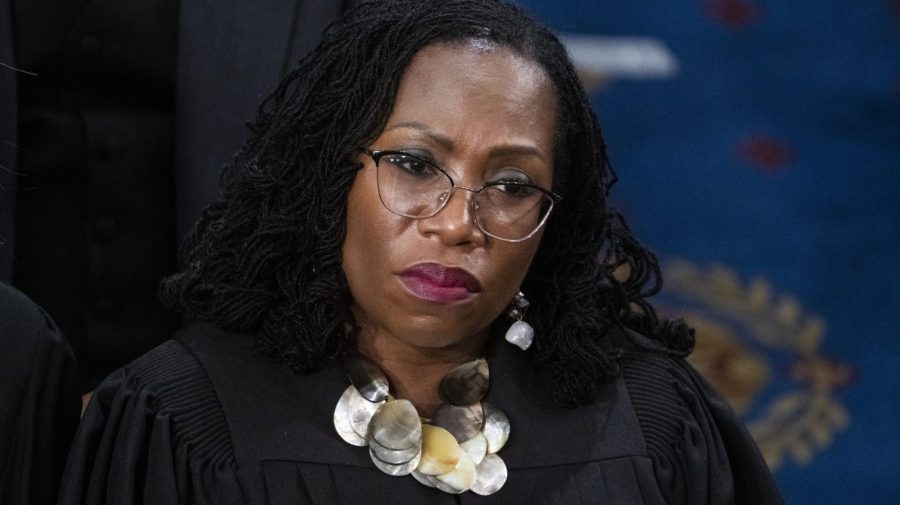
Supreme Court Justice Ketanji Brown Jackson seemed to reject arguments from former President Trump’s attorneys Thursday that the justices must distinguish between personal and official acts to determine whether a president could be prosecuted, warning that the claims threaten turning the Oval Office into a “seat of criminality.”
The court heard oral arguments Thursday for Trump’s immunity case, in which the former president claims he cannot be prosecuted for alleged crimes committed while he was in office, arguing that legal liability limits the president’s ability to act.
Jackson noted that presidents have access to “the best attorneys in the world” to determine whether any of their actions are lawful.
“Why would we have a situation in which we would say that the president should be making official acts without any responsibility for following the law?” she asked.
But she later said she was concerned by Trump’s arguments that a president might be “chilled” in office if they must fear prosecution after they leave.
“I think that we would have a really significant opposite problem if … someone with those kinds of powers, the most powerful person in the world with the greatest amount of authority, could go into office knowing that there would be no potential penalty for committing crimes,” Jackson said.
“I’m trying to understand what the disincentive is from turning the Oval Office into, you know, the seat of criminal activity in this country.”
The Supreme Court arguments come after a federal special counsel charged Trump with multiple felonies, alleging he assisted efforts to overturn the 2020 election results. Trump’s attorneys have claimed innocence, adding that the former president’s actions were also protected by the office.
Liberal justices appeared critical of the Trump argument Thursday, with Justice Sotomayor quizzing the former president’s attorneys over the legal liability if the president were to have someone killed while in office.
“That well could be an official act,” Trump attorney John Sauer said, referring to an assassination of a political rival.
Sotomayor said Trump’s attorneys were asking the court to allow the president to use the office for “total personal gain without facing criminal liability.”
Trump’s argument has previously been rejected by two lower courts. The case marks the first time the justices consider an appeal arising from one of Trump’s four criminal indictments, and their decision could dictate whether those not at trial ever reach a jury.
Copyright 2024 Nexstar Media Inc. All rights reserved. This material may not be published, broadcast, rewritten, or redistributed.














